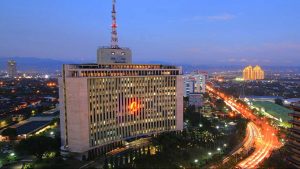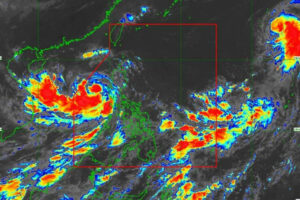Gov’t rejects all bids for T-bills as rates shoot up

THE GOVERNMENT rejected all bids for its offer of Treasury bills (T-bills) on Monday as investors asked for higher yields on expectations of further tightening by central banks here and abroad to temper inflation.
The Bureau of the Treasury (BTr) did not award any T-bills on Monday even as tenders reached P16.303 billion, higher than the P15-billion program.
Broken down, the Treasury refused all bids for the 91-day T-bill even as total tenders reached P7.6 billion, above the P5-billion plan. Had the Treasury made a full award, the three-month debt papers would have fetched an average rate of 4.82%, 250.2 basis points (bps) higher than the 2.318% seen on Sept. 5, the last successful award of the tenor.
The BTr also turned down all 182-day securities even as demand reached P5.503 billion, higher than the programmed P5 billion. If the offer was fully awarded, the average rate of the six-month T-bill would have gone up by 126.8 bps to 5.226% from the 3.958% quoted for the last successful award on Sept. 26.
Lastly, the government turned down all tenders for the 364-day debt papers as total bids came in at only P3.2 billion, below the P5-billion offer. Had the Treasury accepted these bids, the average yield on the one-year instrument would have jumped by 208 bps to 5.862% from the 3.782% fetched for the tenor when it was last awarded on Aug. 22.
At the secondary market prior to the auction on Monday, the 91-, 182-, and 364-day T-bills were quoted at 3.3704%, 4.0154%, and 3.881%, respectively, based on the PHP Bloomberg Valuation Reference Rates data provided by the BTr.
“The auction committee decided to fully reject bids for the Treasury bills in today’s auction. The T-bills fetched averages higher than the previous auction as well as secondary market rates,” the BTr said in a press release on Monday.
The first trader said sentiment for short-dated bonds continues to be bearish “given that both the US Federal Reserve and Bangko Sentral ng Pilipinas (BSP), along with many other central banks globally, continue to be hawkish mainly to temper the persistently high inflation.”
“Market players continue to price in the prospects of higher interest rates in the months to come,” the trader added in a text message.
“The BTr found the bids too high so they opted to reject the auction. The bids are much higher than what is traded in the secondary market, so I think that’s the main reason why they opted to reject,” a second trader said in a phone call.
The Fed is likely to deliver another large rate hike at its November meeting as inflation remains high, with more increases also on the table until next year.
The US central bank has raised rates by 300 bps since March and will next meet on Nov. 1-2.
Back home, BSP Governor Felipe M. Medalla last week said the central bank will consider a 50-bp or 75-bp hike at their own meeting next month to support the peso and prevent its depreciation against the dollar from further stoking inflation.
The Philippine central bank has raised benchmark rates by 225 bps since May and will review its policy stance on Nov. 17.
The BTr wants to raise P200 billion from the domestic market this month, or P60 billion through T-bills and P140 billion via Treasury bonds.
The government borrows from local and external sources to help fund a budget deficit capped at P1.65 trillion this year, equivalent to 7.6% of gross domestic product. — Luisa Maria Jacinta C. Jocson




